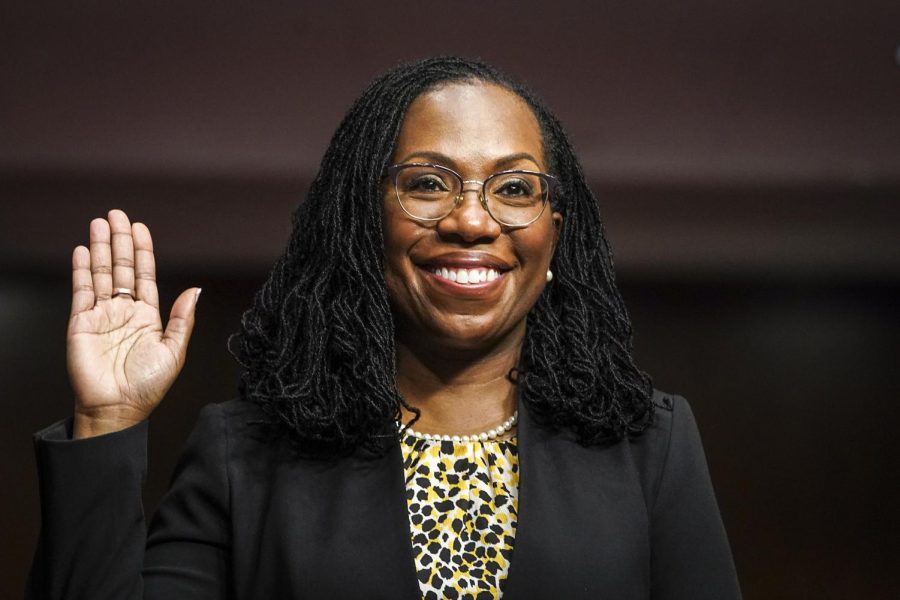Column: Are we still using the phrase “first Black” in 2022?
January 29, 2022
In today’s society, the phrase “first Black” is still a very popular and prominent title bestowed upon several leadership roles in America, almost 70 years after integration. Although the phrase seems to be used in a celebratory light and context, the phrase actually conceptualizes and highlights the systemic racism, hatred and bigotry this country still harbors against minorities and people of color. “First Black” should not be a celebratory phrase anymore in 2022.
The world is vastly different than it was before integration and the American Civil Rights Movement. According to the U.S. Census Bureau, nearly four of 10 Americans identify with a race or ethnic group other than white and suggest that the 2010 to 2020 decade is the first in the nation’s history in which the white population declined in numbers.
While these statistics represent the future of America, the actual leaders who provide the vision for the future of Americans are represented by old white males, debilitating and crippling the chances of genuine diversity in several professional careers and leadership positions.
As 2009 was a historical year for America, with Barack Obama being the first Black president, accomplishments like those in the Black and brown communities are so rare and infrequent. Fast-forward to 2022, and not much has changed for the betterment of equality.
The U.S. Supreme Court, established on September 24, 1789, serves as the final arbiter of the law. The court is charged with ensuring the American people the promise of equal justice under law and, thereby, also functions as guardian and interpreter of the Constitution. While the court’s purpose emphasizes one desired result, their actions disproportionately display another.
How can nine justices ensure the American people the promise of equal justice when the representation does not represent what America truly looks like?
Sandra Day O’Connor was the first female justice to be bestowed upon the court 192 years later, with Thurgood Marshall and Clarence Thomas being the only Black justices on the court since 1991. Of course, with Justice Stephen Breyer finally retiring, President Biden has promised to place the first Black female Justice on the court. This action could be the start of something new and what America drastically needs — inclusivity and representation.
Iconic legal cases such as the Marbury v. Madison and the Roe v. Wade cases were enforced based on the dictates of the Supreme Court, which significantly affect our everyday lives. Having people in the court who can somewhat identify with the specific party at hand makes a great difference between equality and empathy.
Upon President Biden’s announcement, nine leading candidates fill the charts. Each with their own experiences, work ethics and morals. From Ketanji Brown Jackson to Wilhelmina Wright, they showcase that people of color, minorities and the intersectionality of those two factors have the ability to successfully dominate in their career fields, surpassing their white counterparts, breaking glass ceilings and destroying stigmas and stereotypes.
More specifically, Ketanji Brown Jackson, a graduate of Harvard and Harvard Law School was a lawyer clerk for Breyer for a year and then transitioned to a lawyer, a public defender and served in the U.S. Sentencing Commission. Since then, President Biden has promoted her to the U.S. Court of Appeals for the District of Columbia Circuit, further emphasizing that these Black women all have the tenacity, drive, talent and experience to fulfill this role with due diligence, patience, care and certainty. And I only mentioned one of the prospective nine, now that is Black girl magic. So just imagine all the wasted potential and talent that the Supreme Court could have had in their congregation if things were truly equitable and equal for all.
Adding a Black female Justice will also be a series of firsts regarding gender. Four female justices and two Black justices would be serving simultaneously on the nine-member court. Hopefully the influx of inclusivity and diversity in the court will inspire several future generations and stress why representation is essential.
Although I believe society still has bountiful leaps and long strides to endure, it is slowly transforming and transitioning into an atmosphere of equity, equality and justice for all with actual meaning behind the words thanks to this historic action. Not only is the future female, but its trajectory looks to be that all shades of women will now be a part of that statistic.
Let us turn away from the phrase “first Black” and normalize the multitude of people of color in leadership roles.








